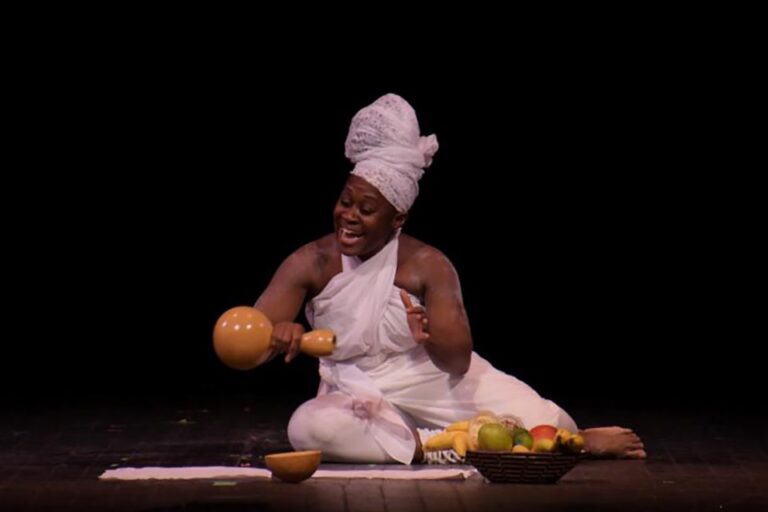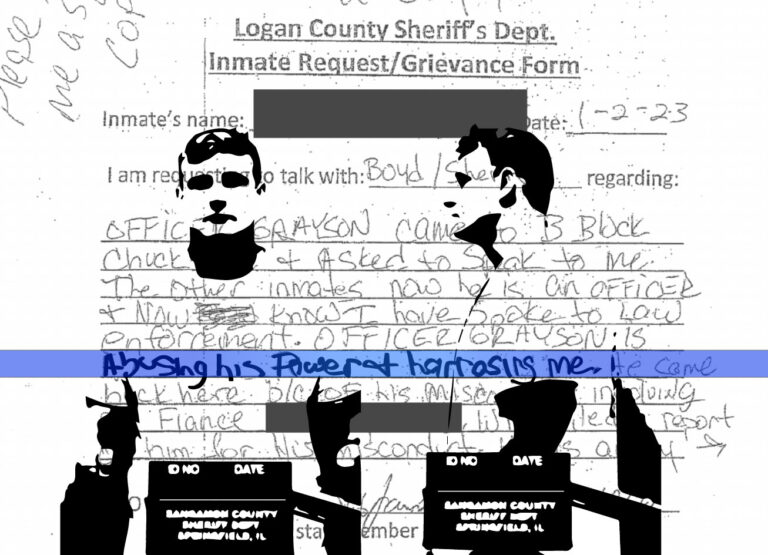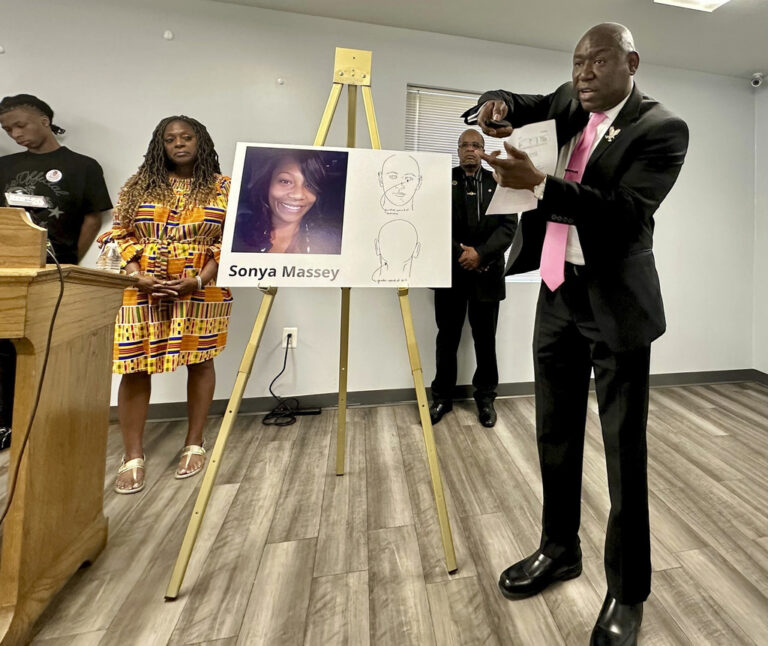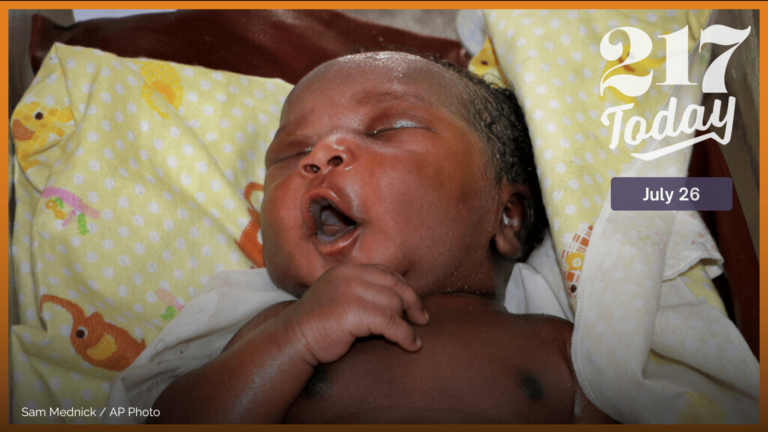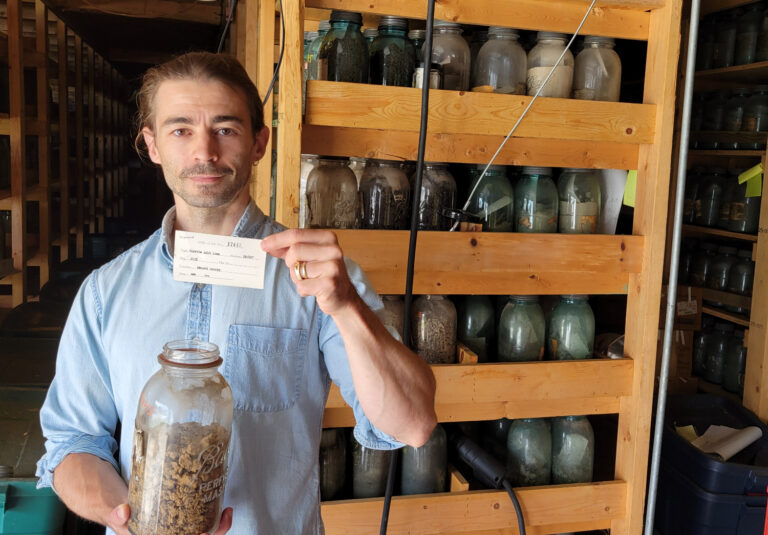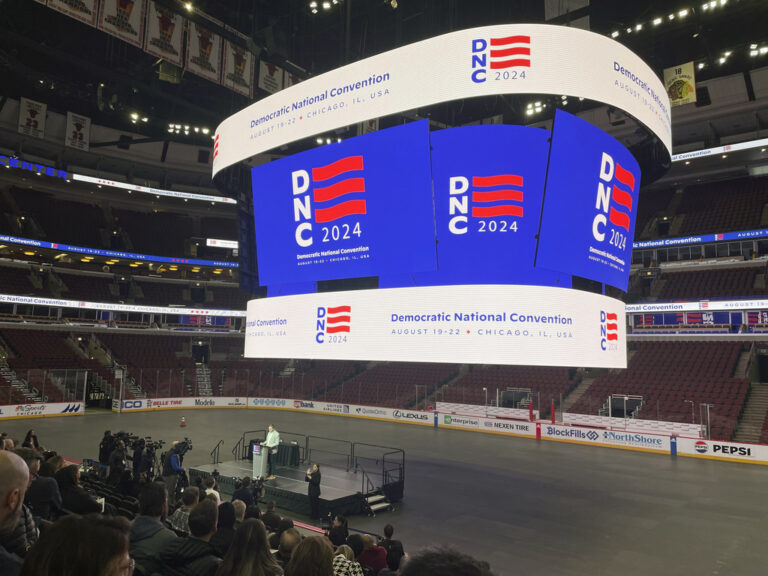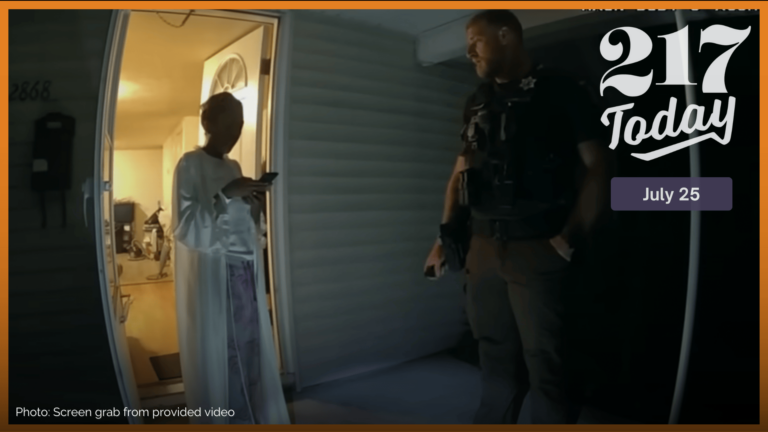Dr. Ama Oforiwaa Aduonum, a professor at Illinois State University, an award-winning playwright, and a Queen Mother in Ghana, spent months in African slave dungeons to get a better understanding of her ancestors’ experiences.
Her time there helped inspire her performance piece Walking with My Ancestors: Cape Coast Castle coming to the Spurlock Museum in Urbana on February 25th at 2pm.
Morning Edition host Kimberly Schofield spoke with Dr. Aduonum about her time in the dungeons and how she uses different elements of music in her teachings and performances.
There will be a talkback following the performance, where audience members can ask questions and share thoughts about the show.
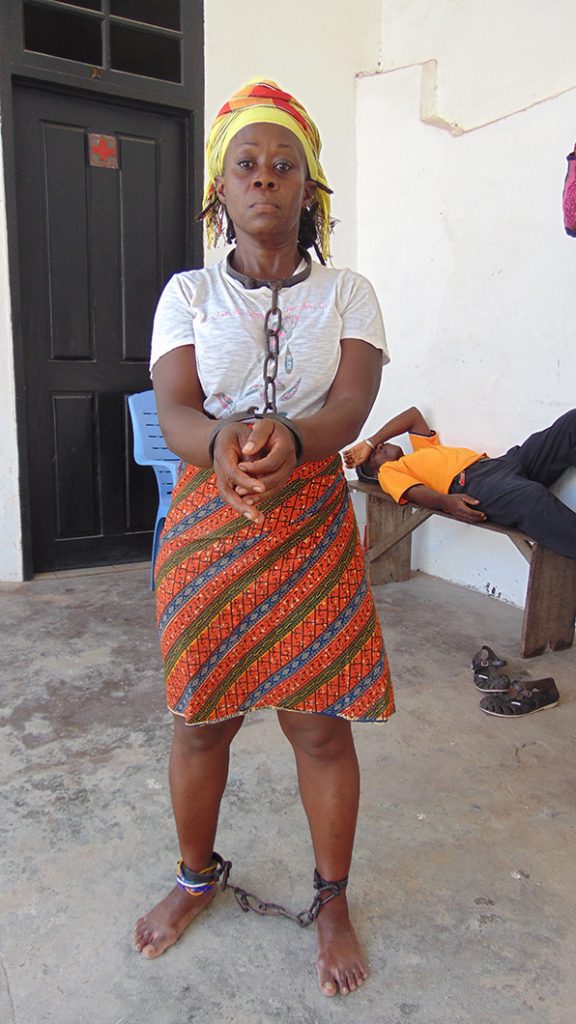
Kimberly Schofield: You grew up participating in your family’s drumming ensembles, what inspired you to use music in your teachings as well as in your performances to help talk about such big and sometimes really heavy topics.
Dr. Ama Oforiwaa Aduonum: In Ghana, when we say music is not just music, it’s more than music. It involves drumming, it involves singing, it involves dancing. It involves theatrical enactments. When I did the research in those former intelligence, the experiences that I had could only be shared through all those elements. It just felt natural to me to just do that because music alone was just not enough. There were periods where I felt that dance would best share what I experienced. There are parts where I felt singing was the best platform or format to share what it is or the experience in those spaces.
KS: What prompted you to say I’m going to go to this place where people were shackled and slaved and experience it.
AOA: Here at ISU, I teach a course called Black Music and in that class, I use videos and one of the videos that I use is Gorée. And it is based on Gorée Island off the coast of Senegal where many Africans were enslaved before they were transported across the Atlantic to plantations in the Americas. And one time when I was sharing the video, my students asked me, “Dr. Ama, have you been to this place before?” And I said, “No, I have not.” And this was in 2007. And they said, “You should go.” I said, “Oh, you know what? I think I’ll do that.” So I applied for a grant and I received a grant and I went off to Gorée Island. So that is where my journey started in 2008. I was there for about six weeks. And then I came back to Ghana, to Elmina Castle in Ghana, and also Cape Coast Castle in Ghana. When I showed that video to my students, I wanted them to think about how those spaces could have inspired the formation, the imagination of music for those who were shackled in there. And so when I went through those spaces, I was also thinking…what types of music could be found, you know, imagined in the spaces.
We’re talking about Africans who come from a long tradition of drumming and dancing and all this stuff. And here, they were shackled. It was, again, trying to understand this music…the sound of moaning and the groaning and the foster to singing and everything else that comes with this music. And I felt as if these spaces could give me a clue as to how the music sounds the way they do or how the music were reimagined in these spaces.
KS: You say, as part of the performance piece, you “visited the dead to learn from them in Ghana.” How has that changed or inspired the way that you have taught or inspired what you have done in Walking with my Ancestors now?
AOA: In Ghana, we have several proverbs and several philosophical teachings, and one of them is sankofa. And sankofa says or teaches us that we need to go back to our past…learn from our past in order to move forward. When I said, “The past has something to say and I will go back home to the dungeons,” and I visited the spirits of the dead, it’s really going back to the past to learn from the past in order to propel, to move forward. In my teaching, I always go back to the past and make those connections to my students for them to understand that this music didn’t just come from nowhere. It has roots. It has a past. When I’m teaching Black Music, I just don’t teach Black music in this country or in the diaspora, I’ll go back to Africa and talk about the foundations of that music, the sense of community…how the sense of community informs, how the music is organized. And then with that foundation, we move on to see how much has changed. Why did this change? How much did the long walk or The Long March or the dungeons…how much did those experiences impact the music, the sound, the movement that accompanies this music?
KS: What did your family or your students and your colleagues say to you when you decided to go explore the dungeons over the course of five months? And you got sick and you had an injury…
AOA: My parents didn’t know I was doing this. I didn’t tell my children either. Because I was there in Ghana with my children, I didn’t tell them. However, after two weeks, my body shut down. I was very, very sick. My children had also noticed that I had been disconnected. I wasn’t talking with them, I wasn’t singing to them, I wasn’t sharing stories with them. And I got sick. So I had to come… I told them what was going on…what had been happening. My children were like, “Mom, we know you love to do this, but it’s not helping you.” And my parents told me that I needed supervision, I needed counseling, and they told me to quit because it was having such a huge impact on how I connected with the people around me. When I came out once, one of the tourists asked me why I was doing this. And I said, “I want to know. This is research. And I feel there’s no other way to know. I mean, I’ve read books, I’ve watched videos, and I’m still not getting a sense…a true understanding, profound understanding, of what really happened those days.” And they told me I was crazy. One student just told me, “Dr. Aduonum, if I hadn’t really seen you in person, in this class would have would have said you were crazy.”
KS: It’s a really heavy topic. And then the responses are also very heavy. Do you ever feel like it wasn’t worth it? Or do you feel defeated by it?
AOA: Never. It never defeated me. It always inspires me, it always motivates me. That is what really inspires me in the classroom when I teach and when I perform…being able to share the story, this experience, that most people don’t even think about. Most people don’t even know that there were places such as these where Africans were shackled and kept for months before they were placed on the boats across the Atlantic. And so for me, this is a very important topic, very important subject, that needs to be shared. And I feel inspired to be the mouthpiece to fill this gap that is often in my mind is missing when we talk about, you know, slavery and enslavement.
KS: It’s a topic that I’m sure a lot of people are uncomfortable about and uncomfortable talking about. What do you hope that people will take away from it?
AOA: If we are uncomfortable, how did they…who went through those spaces…how did they feel? We have to be bold and brave to really face the truth of what happened. I hope that people are going to leave this performance and this showcase inspired, knowing that some people survived. And also to know that the human spirit is a very powerful spirit that can overcome a lot and will fight or resist in order to survive, but also to tell truth, to be uncomfortable. Because therein lies knowledge. When we are uncomfortable, that is when I think we are moved and shifted to rethink what we’ve accepted as our truths…and we are challenged to think otherwise, to expand our thinking and our knowledge. So I do hope people who experience my work think about those who went through…empathize, and also think deeply about how this history really connects us all. It informs us all. We all experience and have benefited from this issue and it needs to be told.

